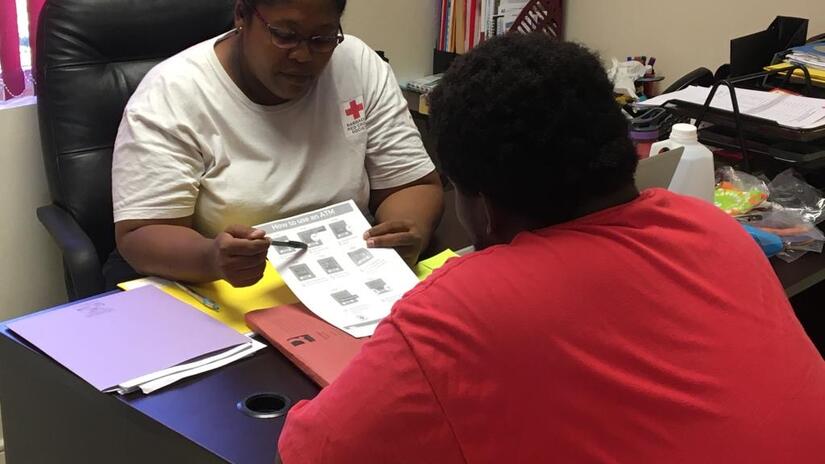By Angela Hill
While the number of COVID-19 cases in many Caribbean nations remain relatively low, these tourist hotspots are feeling the impact of the pandemic in other ways.
The initial global shut down, and ongoing travel restrictions, saw the closure of resorts and hotels throughout the Caribbean, and while some are reopening, many people are still without work.
In St. Lucia, the Red Cross began supporting vulnerable families through distribution of food and hygiene parcel. For the first time, the national society implemented a cash card program as part of its response to families in need.
“Our surveys suggested that people were not able to pay bills, so by giving them unrestricted financial assistance, people can put the money towards what they need,” said Marva Edwards the COVID-19 project manager for the St. Lucia Red Cross.
“COVID-19 has had serious impacts on the lives of people so quickly, that as a national society, we had to be in a position to provide support in the shortest time,” she said.
With Lucia Red Cross’ experience in disaster planning and response, and its relationship in the communities, the organization was already working already working alongside vulnerable families, so they were able to reach out to them without delay. They are also receiving referrals from their volunteers, as well as through other networks of organizations, and known, respected community leaders.
“What we are seeing on the ground is, it’s getting worse,” Edwards said.
In Barbados, the Red Cross partnered with the Office of the Prime Minister to help select beneficiaries for the cash support initiative. Those affected have included numbers of people formerly employed in the tourism sector, as well as people with pre-existing health complications and single parent families, said Danielle Toppin, the COVID-19 project manager in Barbados.
Like St. Lucia, in Barbados the number of cases are low, but the economic impact of COVID-19 is high.
Toppin said the Red Cross has been supporting people through supermarket vouchers, food hampers, and financial assistance, and for many, it’s the first financial help they have received. Many of the beneficiaries shared that they have never relied on welfare assistance before, but now find themselves with few options.
“The nature and face of vulnerability is shifting. The longer people stay out of work, for many, the more hopeless they feel. The psychosocial impact of COVID is significant. During this time, we’ve had people come into our offices and cry with relief,” she said.
“One young lady that cried when we called, because she said she had just finished crying and praying for some help, then we called. We are just playing a small part, but we are happy to be in a position to bring some necessary assistance and relief.”
Article
World Radio Day: How radio helps keep communities healthy and safe
World Radio Day: How radio helps keep communities healthy and safe
| Article

